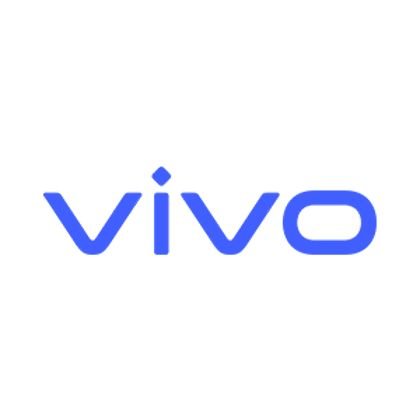
Emerging technologies such as artificial intelligence (AI), blockchain, quantum computing, and biotechnology are transforming industries at a rapid pace. Startups are at the forefront of these changes, driving innovation and pushing the boundaries of what’s possible. Here are some of the top startups in 2024 that are making a significant impact in their respective fields by harnessing the power of emerging technologies.
1. OpenAI
Industry: Artificial Intelligence
Headquarters: San Francisco, USA
Why OpenAI?
OpenAI is a leading startup in the AI space, known for its groundbreaking work in developing powerful AI models like GPT (Generative Pre-trained Transformer) and DALL-E. OpenAI focuses on creating artificial general intelligence (AGI) that is safe and beneficial for humanity. In 2024, OpenAI continues to push the limits of what AI can achieve, working on various projects that improve natural language understanding, machine learning, and creative AI.
Key Innovations:
- ChatGPT: A conversational AI model used in a wide range of applications, from customer support to content generation.
- Codex: A programming assistant that translates natural language into code, revolutionizing how software development is done.
- AI for Science and Medicine: Initiatives to use AI to solve complex scientific problems, including drug discovery and climate modeling.
Why It Matters: OpenAI’s developments in AI are influencing many industries, from software development to healthcare, making AI more accessible and integrated into everyday applications.
2. Quantum Machines
Industry: Quantum Computing
Headquarters: Tel Aviv, Israel
Why Quantum Machines?
Quantum Machines is a pioneering startup in the quantum computing space, building the hardware and software infrastructure needed to accelerate quantum technology adoption. The company’s Quantum Orchestration Platform (QOP) is designed to manage complex quantum algorithms and operations, making it easier for researchers and companies to experiment with quantum computing.
Key Innovations:
- Quantum Orchestration Platform (QOP): A comprehensive platform that integrates control, data acquisition, and quantum error correction to enhance quantum computer performance.
- Pulse Processing Unit (PPU): A hardware accelerator specifically designed for quantum computing tasks, significantly speeding up quantum experiments.
Why It Matters: Quantum Machines’ technology is helping bridge the gap between quantum theory and practical applications, paving the way for breakthroughs in fields like cryptography, materials science, and artificial intelligence.
3. Helium
Industry: Blockchain, IoT
Headquarters: San Francisco, USA
Why Helium?
Helium is a blockchain-based startup aiming to decentralize wireless networks by creating “The People’s Network,” a global, peer-to-peer wireless network for the Internet of Things (IoT) devices. Using a combination of blockchain technology and a unique wireless protocol called LongFi, Helium enables low-power devices to connect to the internet efficiently.
Key Innovations:
- LongFi Protocol: A long-range wireless protocol optimized for IoT devices, enabling secure and energy-efficient communication.
- Helium Hotspots: Devices that provide network coverage for IoT devices while earning cryptocurrency (HNT) rewards for network operators.
- Decentralized Wireless Networks: A global network built by individual users, reducing costs and improving coverage for IoT applications.
Why It Matters: Helium’s decentralized model challenges traditional telecom networks, making IoT connectivity more accessible and affordable while also leveraging blockchain for secure data transmission.
4. Recursion Pharmaceuticals
Industry: Biotechnology, AI
Headquarters: Salt Lake City, USA
Why Recursion Pharmaceuticals?
Recursion Pharmaceuticals is revolutionizing drug discovery by combining advanced machine learning techniques with high-throughput biological experimentation. The company uses AI to analyze massive amounts of biological data to identify new drug candidates faster and more efficiently than traditional methods.
Key Innovations:
- AI-Driven Drug Discovery: Leveraging machine learning models to predict the efficacy and safety of new drugs based on biological data.
- Recursion OS: A platform that integrates automated biological experimentation with AI-powered analysis to accelerate drug development.
- Partnerships with Pharmaceutical Companies: Collaborations with major pharmaceutical companies to bring AI-discovered drugs to market.
Why It Matters: Recursion Pharmaceuticals is accelerating the drug discovery process, potentially bringing new treatments to patients faster and at a lower cost, transforming the healthcare industry.
5. Turing
Industry: Remote Work, AI
Headquarters: Palo Alto, USA
Why Turing?
Turing is an AI-driven platform that connects companies with remote software developers from around the world. By using AI to match developers with the right opportunities, Turing helps companies scale their engineering teams quickly and efficiently, while also providing developers with access to global job opportunities.
Key Innovations:
- Intelligent Talent Matching: An AI algorithm that matches developers with job opportunities based on their skills, experience, and preferences.
- Remote Work Infrastructure: Tools and services that facilitate remote work, including time tracking, payroll, and collaboration tools.
- Global Talent Pool: A diverse network of developers from over 100 countries, providing access to a wide range of skills and expertise.
Why It Matters: Turing is making it easier for companies to access top talent and build high-performing teams, regardless of location, driving the future of remote work.
6. Fiddler AI
Industry: Explainable AI (XAI)
Headquarters: Palo Alto, USA
Why Fiddler AI?
Fiddler AI focuses on providing explainable AI solutions, helping businesses understand and trust their AI models. The company’s platform offers tools to monitor, analyze, and explain AI decisions in real time, ensuring transparency and fairness in AI applications.
Key Innovations:
- Explainable AI Platform: A platform that provides insights into AI decision-making processes, highlighting potential biases and ensuring compliance with regulations.
- Model Monitoring and Debugging: Real-time monitoring tools that detect and address issues in AI models, improving their reliability and performance.
- Bias Detection: Tools to identify and mitigate bias in AI models, ensuring fairness and ethical AI use.
Why It Matters: As AI becomes more integral to decision-making in various industries, Fiddler AI’s solutions help ensure that AI is transparent, fair, and trustworthy, addressing critical concerns about AI ethics.
7. Synthego
Industry: Biotechnology, CRISPR
Headquarters: Redwood City, USA
Why Synthego?
Synthego is a leading startup in the field of gene editing, providing CRISPR-based tools and services to accelerate the development of gene therapies and research. The company’s innovative approach to gene synthesis and editing is making it easier for researchers to create and test new therapies.
Key Innovations:
- CRISPR Toolkits: Comprehensive toolkits for gene editing, including synthetic guide RNA, reagents, and software for designing and implementing CRISPR experiments.
- Automated Genome Engineering Platform: A platform that automates the gene editing process, reducing errors and speeding up research.
- Partnerships with Biotech Companies: Collaborations with pharmaceutical and biotech firms to develop new gene therapies.
Why It Matters: Synthego is helping democratize gene editing by making CRISPR tools more accessible, accelerating research, and driving innovation in personalized medicine and genetic therapies.
8. Rigetti Computing
Industry: Quantum Computing
Headquarters: Berkeley, USA
Why Rigetti Computing?
Rigetti Computing is a quantum computing startup focused on building full-stack quantum computing solutions that combine hardware, software, and cloud services. The company aims to make quantum computing accessible to developers and businesses by providing a quantum cloud platform.
Key Innovations:
- Quantum Cloud Services: A platform that allows users to access quantum computers over the cloud, enabling experimentation and development without the need for specialized hardware.
- Quantum-Classical Hybrid Systems: Integration of quantum and classical computing resources to solve complex problems more efficiently.
- Quantum Application Development Tools: Tools and libraries that help developers create and run quantum algorithms.
Why It Matters: Rigetti Computing is accelerating the commercialization of quantum computing, making this transformative technology more accessible to businesses and developers worldwide.
9. Aurora Solar
Industry: Renewable Energy, AI
Headquarters: San Francisco, USA
Why Aurora Solar?
Aurora Solar is a startup revolutionizing the solar industry with its AI-powered software platform for designing and selling solar installations. The platform allows solar companies to design accurate solar proposals, calculate savings, and optimize installation plans using AI and machine learning.
Key Innovations:
- AI-Driven Solar Design: Automated tools for designing solar panel layouts and generating proposals in minutes.
- Energy Savings Estimation: Predictive models that calculate energy savings and return on investment for potential solar customers.
- 3D Modeling and Visualization: Advanced tools for creating 3D models of rooftops and simulating solar panel installations.
Why It Matters: Aurora Solar’s platform is helping accelerate the adoption of renewable energy by making it easier and more cost-effective for businesses and homeowners to switch to solar power.
10. Neuralink
Industry: Neurotechnology
Headquarters: San Francisco, USA
Why Neuralink?
Neuralink is a neurotechnology startup founded by Elon Musk with the ambitious goal of developing brain-computer interface (BCI) technology. The company is working on implantable devices that can directly interface with the human brain, potentially enabling new forms of communication, control, and even memory enhancement.
Key Innovations:
- Brain-Computer Interfaces: Development of high-bandwidth, implantable devices that connect directly to the brain, enabling communication with computers and other devices.
- Neural Implants: Tiny, flexible electrodes that can be implanted into the brain with minimal damage to neural tissue.
- Applications in Medical Treatment: Potential applications include treating neurological conditions like Parkinson’s disease, epilepsy, and spinal cord injuries.
Why It Matters: Neuralink’s work could revolutionize how humans interact with technology, offering new possibilities for communication, cognitive enhancement, and the treatment of neurological disorders.
Conclusion
These startups are at the cutting edge of innovation, driving the development and adoption of emerging technologies across various industries. From AI and quantum computing to biotechnology and renewable energy, these companies are not only redefining what is possible but also shaping the future of technology and its impact on society. Keeping an eye on these startups can provide valuable insights into the future direction of tech innovation.









